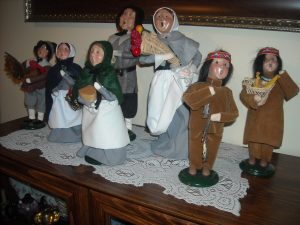 Genesis 46:1-7
Genesis 46:1-7
The walk of faith in God can be difficult. God is infinitely greater than us, and we often fail to know his plans and promises, even though they are clearly stated in his word. We are limited beings, and there is much we cannot understand. Personal trials and suffering can mislead us. In addition, we often misinterpret our situation because of the effects of sin on our minds. But God is gracious! He encourages us by his word to rely upon him, to endure, and to put our hope in him. Why, my soul, are you downcast? Why so disturbed within me? Put your hope in God, for I will yet praise him, my Savior and my God (Psalm 42:5 NIV)
See God’s word to Jacob. And God spoke to Israel in a vision at night and said, “Jacob! Jacob!” “Here I am,” he replied. “I am God, the God of your father,” he said. “Do not be afraid to go down to Egypt, for I will make you into a great nation there. I will go down to Egypt with you, and I will surely bring you back again. And Joseph’s own hand will close your eyes” (Genesis 46:2-4 NIV).
God gave his word to Jacob by direct, personal address. The doubling of the name speaks of God’s love for the person (46:2). Think of Abraham (Genesis 22:11); Samuel, (1 Samuel 3:10); Martha, (Luke 10:41); Simon Peter, (Luke 22:31); Saul Paul (Acts 9:4). The Lord revealed himself as the One whom Jacob had worshiped for many years (46:3).
God gave a comforting promise to his loved one (46:3-4). God told Jacob:
- Don’t be afraid, for I am working out my plan in human history. I will do there what I have promised you and your fathers.
- Be assured of my presence with you. I’m going with you there, and I’ll certainly bring you back to this land again. Did Jacob have some visual sense of the glory of God accompanying him? It is not said, but it is highly unlikely. But God’s word is as good as a visible sign. Do you believe this? See Hebrews 13:5: God has said, “Never will I leave you; never will I forsake you.”
- Know that you will be reunited with Joseph. God is able to repay for the years the locusts have eaten. I will repay you for the years the locusts have eaten—the great locust and the young locust, the other locusts and the locust swarm—my great army that I sent among you. You will have plenty to eat, until you are full, and you will praise the name of the Lord your God, who has worked wonders for you; never again will my people be shamed. Then you will know that I am in Israel, that I am the Lord your God, and that there is no other; never again will my people be shamed (Joel 2:25-27 NIV).
How did Jacob respond? He acted according to God’s word. He obeyed (46:5-7). It is like Jacob told his family, “Boys and girls, let’s go! God is about to fulfill his word. His time has come to make us a great nation. He wants us out of Canaan and in Egypt. Therefore, let’s go to Egypt!”
Lessons:
- What tremendous obedience in a man of 130 years! He is willing to upset the remaining days of his life, forsake everything, and follow God’s call. May his tribe increase!
- Here is an amazing promise to rest on. “I will go… with you.” We ought to prove his promise true by going and making disciples.
- The church’s land of rest is the spiritual Canaan, a new heaven and a new earth. We will possess that land at his appointed time. Now he is making us a great nation in this spiritual Egypt, this present age. Let’s remember he is always with us during this time.
Grace and peace, David

 Genesis 43:1-14
Genesis 43:1-14 2 Chronicles 20:20-30
2 Chronicles 20:20-30 Exodus 5:22-6:12
Exodus 5:22-6:12